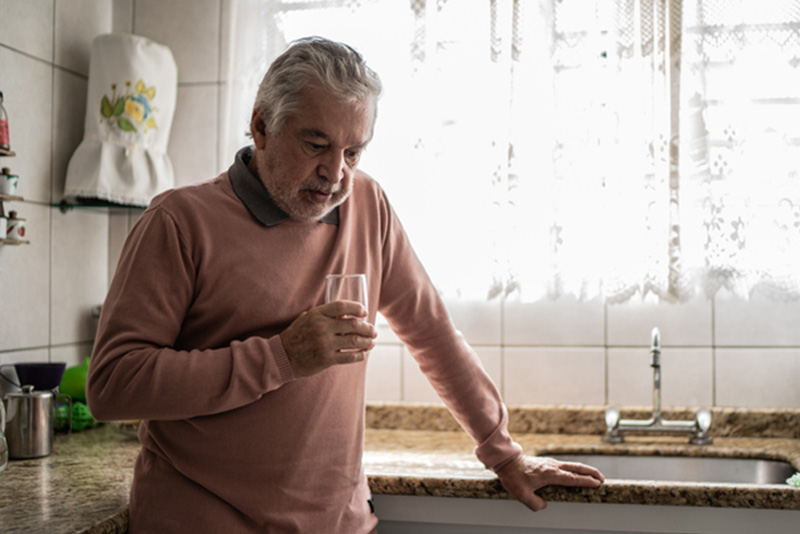
Some people can experience a decline in mental health after a heart issue.
Having a heart attack changes life instantly. What felt important prior to the health crisis suddenly fades into the background, while the top priority becomes helping the weakened heart to heal. Life is then full of adjusting to new medications, implementing dietary changes and an exercise regimen, following up with medical appointments and tests, all aimed at ensuring maximum physical health.
Yet it is equally important to pay attention to mental health during recovery. While tending to all of the new to-dos, feelings of fear, frustration, anger, anxiety, and denial, amongst others, may settle in. It’s understandable that there can be a decline in mental health after a heart issue. As a matter of fact, cardiovascular disease and depression very often go hand in hand. Those with no history of depression are at risk to experience it following a heart condition, while individuals already living with depression are at an increased risk for heart disease.
Why Is Depression Common After a Heart Attack?
Heart-related illnesses may cause a person to experience many moods, including:
- Guilt over lifestyle choices that could have brought about the issue
- Uncertainty about the future
- Lowered self-esteem
- Self-doubt and questions about self-identity
- Embarrassment about the need for help
- And others
These types of feelings lead to depression, which in turn affects the person’s capacity to recover fully from the heart attack, since they may:
- Lack the motivation to follow doctor’s orders
- Decide to self-medicate through unhealthy eating, alcohol, smoking, etc.
- Suffer from depression-related hormone changes that could cause cardiac arrhythmia
- Develop especially sticky platelets that speed up hardening of the arteries
What Are the Signs of Depression?
Determine if any of these warning signs of depression are present after a heart incident:
- Hopelessness or helplessness
- Changes in appetite or weight
- Lack of interest in once-enjoyed activities
- Changes to sleeping habits
- Sluggishness or restlessness
- Difficulty with memory, focusing, or decision-making
If you suspect depression, speak with the physician as quickly as possible. Effective treatment options are available.
How Home Care Can Help
Healing after a heart attack is challenging enough, but adding in the effects of depression can make it seem impossible. In-home care can help in many ways with both physical and emotional recovery, with services such as:
- Medication reminders to ensure meds are taken just as prescribed
- Assistance with sticking to a prescribed exercise plan
- Planning and preparing nutritious meals
- Friendly companionship for conversations and engaging distractions to brighten each day
- Light housekeeping and laundry
- Trips to the grocery and other errands
- And more
Contact the team at Morning Glory Home Care at 618-667-8400 to request more resources to help someone with cardiovascular disease, depression, or any other chronic health condition, and to discover more about our home care services in Edwardsville, Alton, Highland, and the surrounding areas.
